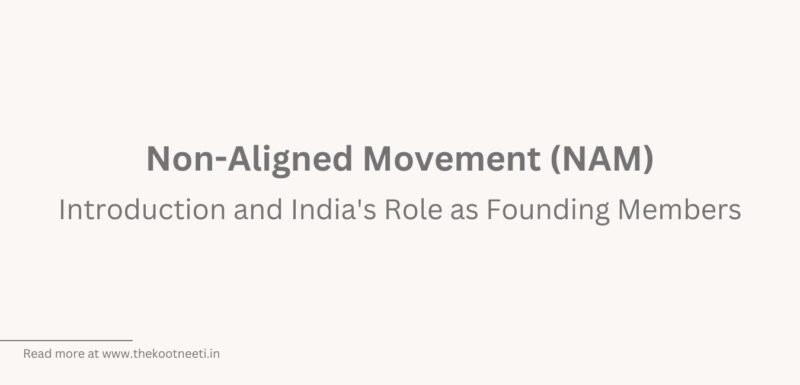Non-Aligned Movement (NAM): Introduction and India’s Role as Founding Members

The Non-Aligned Movement (NAM) is an international organization that represents the interests of countries that are not formally aligned with or against any major power bloc. It was founded in 1961 and has 120 member countries. The NAM is based on the principles of peaceful coexistence, respect for sovereignty and territorial integrity, and the promotion of international cooperation. The NAM works to promote the peaceful resolution of conflicts, disarmament, and the peaceful use of nuclear energy, and it supports the United Nations and other international organizations in their efforts to address global challenges. The NAM also works to promote economic development and cooperation among its member countries, and it advocates for the rights of developing countries in the international system.
Origin
The Non-Aligned Movement (NAM) origin dates back to the Bandung Conference in Indonesia in 1955. The conference was attended by leaders and representatives of newly independent Asian and African countries, who were seeking to assert their independence and establish a collective voice in international affairs. The conference marked the birth of the Non-Aligned Movement, which aimed to promote the interests of developing countries and to promote peace and security in the world by advocating for a neutral stance in the Cold War between the United States and the Soviet Union.
India’s role in founding NAM
India played a central role in the founding of the Non-Aligned Movement (NAM). The NAM was established in 1961 at the first Conference of Heads of State or Government of Non-Aligned Countries, which was held in Belgrade, Yugoslavia. The conference was attended by 25 countries, including India, and was called at the initiative of Yugoslavia, India, and Indonesia.
The NAM was intended to provide a platform for countries that were not formally aligned with or against any major power bloc to address global challenges and promote economic development and cooperation.
India’s first Prime Minister, Jawaharlal Nehru, was one of the key figures in the founding of the NAM and played a central role in shaping the movement’s principles and objectives.


















